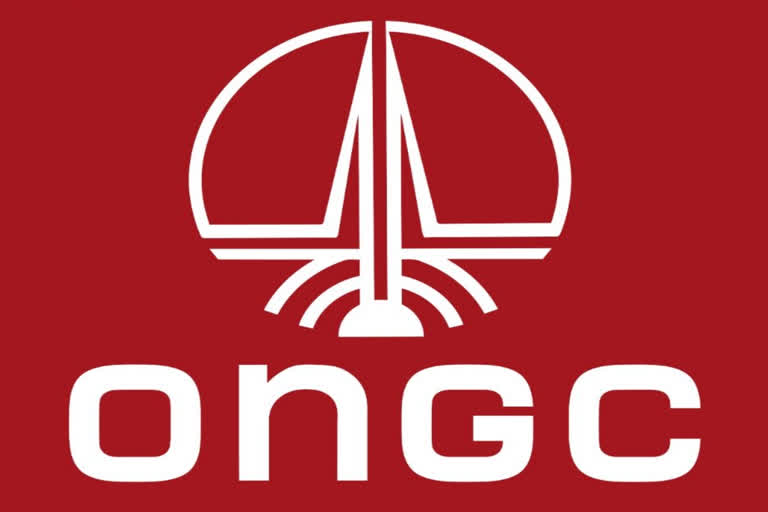New Delhi: India's top oil and gas producer ONGC is pivoting a four-pronged strategy of ramping up exploration efforts, quickly bringing discovered resources to production, raising recovery from existing fields and increasing collaborations with experts to reverse years of decline in output, its new chairman Arun Kumar Singh said.
Oil and Natural Gas Corporation (ONGC) is keen to induct internationally renowned exploration firms as strategic partners in difficult areas such as deepsea and bring-in experts who can help raise productivity from ageing and mature fields such as prime Mumbai High, Singh told PTI in an interview here. ONGC, which contributes around 71 per cent to India's domestic production, has reported a gradual decline in output for over a decade now primarily because its fields are old and ageing.
It produced 21.707 million tonnes of crude oil, which is refined to produce petroleum products like petrol and diesel, and 21.68 billion cubic meter (bcm) of natural gas, which is used to produce electricity, manufacture fertilizer and as CNG in automobiles. "We are focusing on three key areas: deepwater exploration, monetising the discovered fields on fast-track and enhancing production from producing fields through enhanced oil recovery and improved oil recovery techniques.
"We are looking for collaborations mainly for deepwater exploration. We are also open to partnerships in the other two areas, if substantial value additions are brought by the partners," he said. Technologically, ONGC is strong in shallow waters. "We know Mumbai High like the back of our hands. However, if partners can add value to our business, they are welcome. We are looking forward to all such collaborations in the India Energy Week in Bengaluru during February 6-8, 2023," he said.
While its legacy fields continue to be the mainstay of base production, ONGC is looking to provide traction to the development of new fields as well as new schemes for maximizing recovery in mature areas. The firm believes that Indian Basins have a lot more to offer and the recent successes with Bengal Basin and Vindhyan have reinforced that belief.
Singh said there is a need for undertaking better exploration, quick appraisal of the field followed by quicker development so as to monetise the find in the shortest possible time. "Globally, all massive discoveries are happening recently in the Deep Seas. Last week, there was a big discovery in Namibia in Africa and Guyana in South America. Our deepwater is not well explored. So, we hope that we will soon have some major finds in deep waters. We have to discover and that too in a very aggressive way," he said.
Aiding exploration are the right prices. "Secondly, since prices are good we can bring into production whatever we have discovered; either we do it ourselves or through some private party, we have to figure out a way so that it is done in the common interest of the country," he said. "We need to develop whatever we have discovered."
Singh, who is the second person from downstream oil refining and marketing to head ONGC in two decades (the last one was Subir Raha), brings a fresh perspective to the company that has traditionally has been plagued by slow decision making given its size. ONGC is open to giving equity stake in difficult fields, he said adding giving stake will de-risk and bring capital."Third, we have to focus on how to maximize the production of whatever we are producing currently through collaboration," he said.
"At present, the one big part we have to ramp up, according to me, is exploration as well as collaboration. You explore more and you collaborate in all the spheres where there is more potential like deepsea exploration in the eastern offshore," he added. Singh said it is only for deepwater or difficult fields that some technology experts can help ONGC.
"Typically, oil recovery globally is around or over 30 per cent. In our case, it is still not 30 per cent, but rather around 26-27 per cent. It's like anything you bring that could add to the oil recovery process. We are developing a proper way to do it," he said. The important thing for ONGC is that it is willing to collaborate and the India Energy Week beginning February 6 will provide an opportunity to discuss such collaborations with a host of international companies attending the event, he said.
"Even Nobel prizes, today, are shared by people. Gone are the days when it was conferred only to a single person. This is more about synthesis than analysis," he said adding the India Energy Week provides an ideal platform for looking at synergies with companies from around the globe. ONGC, he said, has a larger role because of its objectives being aligned with the national interest. "So, we have to figure out ways that cater to the national interest, which can't be done by private entities.
And it is for these reasons only that we are looking forward to collaboration and partnerships in difficult fields." Asked what needs to change in ONGC, he said speed becomes a casualty at times because of multi-functional disciplines governing various spheres of finding and producing oil and gas. "We just have to make sure that we decide fast. On-the-job changes are inevitable, the only thing is that you need to be quick," he said. "Decision-making for PSUs is very coloured.
So, some delay in that account is an obvious but not inordinate delay." Private companies are very fast in decision-making. "And our problem is that we have so many variables. Hence, the decision-making could be made better at least from a speed and rationality point of view," he said. (PTI)



